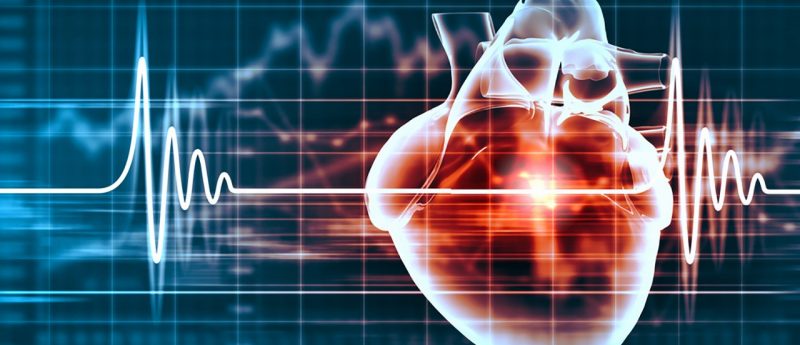Increased risk of major adverse cardiovascular events associated with heart radiation therapy for some NSCLC patients, study suggests

Some lung cancer patients receiving radiation therapy may be at increased risk of experiencing severe, adverse cardiovascular events.
A new retrospective study has found that patients receiving radiation treatment to the heart for locally advanced non-small-cell lung cancer (NSCLC) may be at increased risk of experiencing severe, adverse cardiovascular outcomes, such as heart attacks and heart failure.
Lung cancer is the leading, worldwide cause of cancer deaths. 50% of lung cancer patients require radiation therapy as part of their cancer care. However, studies have reported that advances in screening for lung cancer, and treating patients with immunotherapies, have significantly extended patient’s average survival rate.
In the study, the authors commented that: “…given improving NSCLC outcomes…” and the “…clinically significant cardiac events postradiotherapy, there remains an urgent need for improved cardiac risk assessment using validated cardiac endpoints, identification of predictive factors, and maximized risk reduction strategies with optimized radiotherapy approaches.”
In the study, researchers analyzed outcomes data from 748 patients. Patients included in the study had 2010 American Joint Commission on Cancer clinical stage II or III NSCLC treated with thoracic radiotherapy using conventional — 3D conformal radiotherapy — or intensity-modulated radiotherapy techniques.
Cox, and Fine and Gray regression analyses were employed to identify predictors of major adverse cardiac events and mortality. Lung cancer and cardiovascular prognostic factors — including preexisting coronary heart disease — were adjusted for.
After an average follow-up period of 20.4 months, 77 of the 748 patients studied — equivalent to 10.3% of the total number of patients — were found to have experienced a severe, adverse cardiovascular event. 533 of the patients had died.
After adjusting for age, baseline pre-existing coronary heart disease or arrhythmia, and radiotherapy technique, increased risk of experiencing a severe, adverse cardiac event and mortality, were associated with increased radiation dose.
In other words, radiation dose was identified as an independent predictor of major adverse cardiac events. This was particularly true amongst the patient cohort who did not display pre-existing coronary heart disease before receiving radiation therapy.
Raymond Mak, senior study author and thoracic radiation oncologist at Dana-Farber Cancer Institute and Brigham and Women’s Hospital (MA, USA), commented that “This is alarming data — to think that one in ten of the patients I’m treating for this type of cancer will go on to have a heart attack or other major cardiac event”.
Mak continued: “These cardiac events are happening earlier and more often than previously thought. More patients are living long enough to experience this risk of cardiac toxicity. We need to start paying attention to this and working together with cardiologists to help these patients.”
Katelyn Atkins, Harvard Radiation Oncology Residency Program resident (MA, USA), noted that: “When treating patients with lung cancer, it’s a balance of risks”. Going forward, she continued: “we need to start thinking about where there’s room for improvement in optimizing treatment for patients and room for improvement in terms of collaborating with primary care physicians and cardiologists.”
In the study, the authors conclude that: “Despite the competing risk of cancer-specific death in locally advanced NSCLC patients, cardiac radiation dose exposure is a modifiable cardiac risk factor for major adverse cardiac events and all-cause mortality, supporting the need for early recognition and treatment of cardiovascular events and more stringent avoidance of high cardiac radiotherapy dose.”
Sources:
Atkins KM, Rawal B, Chaunzwa TL et al. Cardiac Radiation Dose, Cardiac Disease, and Mortality in Patients With Lung Cancer. JACC. 73 (23); 2976-2987, (2019); https://www.dana-farber.org/newsroom/news-releases/2019/radiation-treatment-increases-cardiac-risk-for-lung-cancer-patients/
